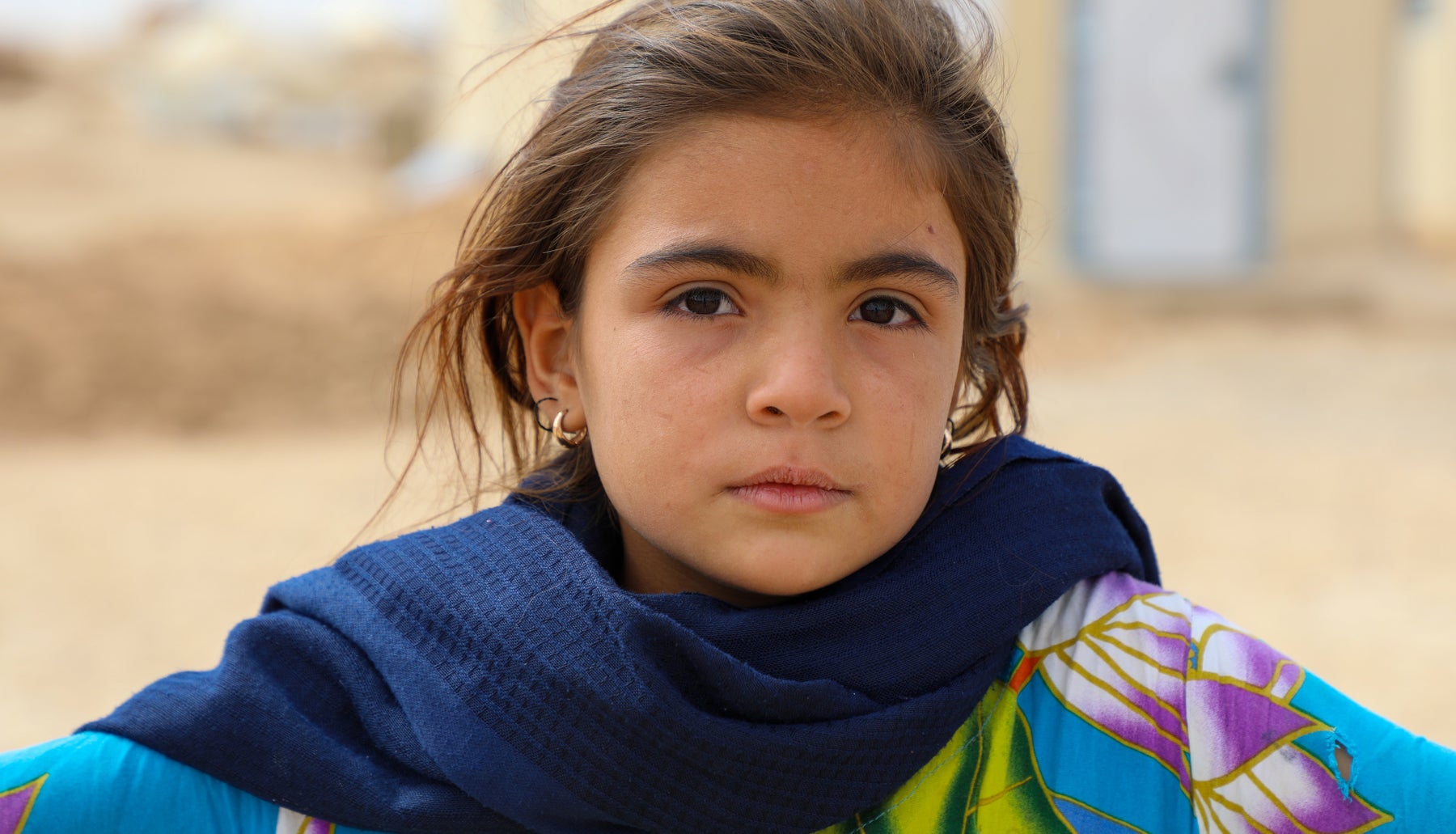Amid conflict and natural disasters, the recent COVID-19 pandemic has worsened the humanitarian crisis in Afghanistan.
Decades of war has devastated the country and forcibly displaced millions. Currently, 14 million people in Afghanistan need humanitarian assistance as poverty persists and basic services weaken.
Among the victims of Afghanistan’s enduring conflict, children are the most vulnerable.
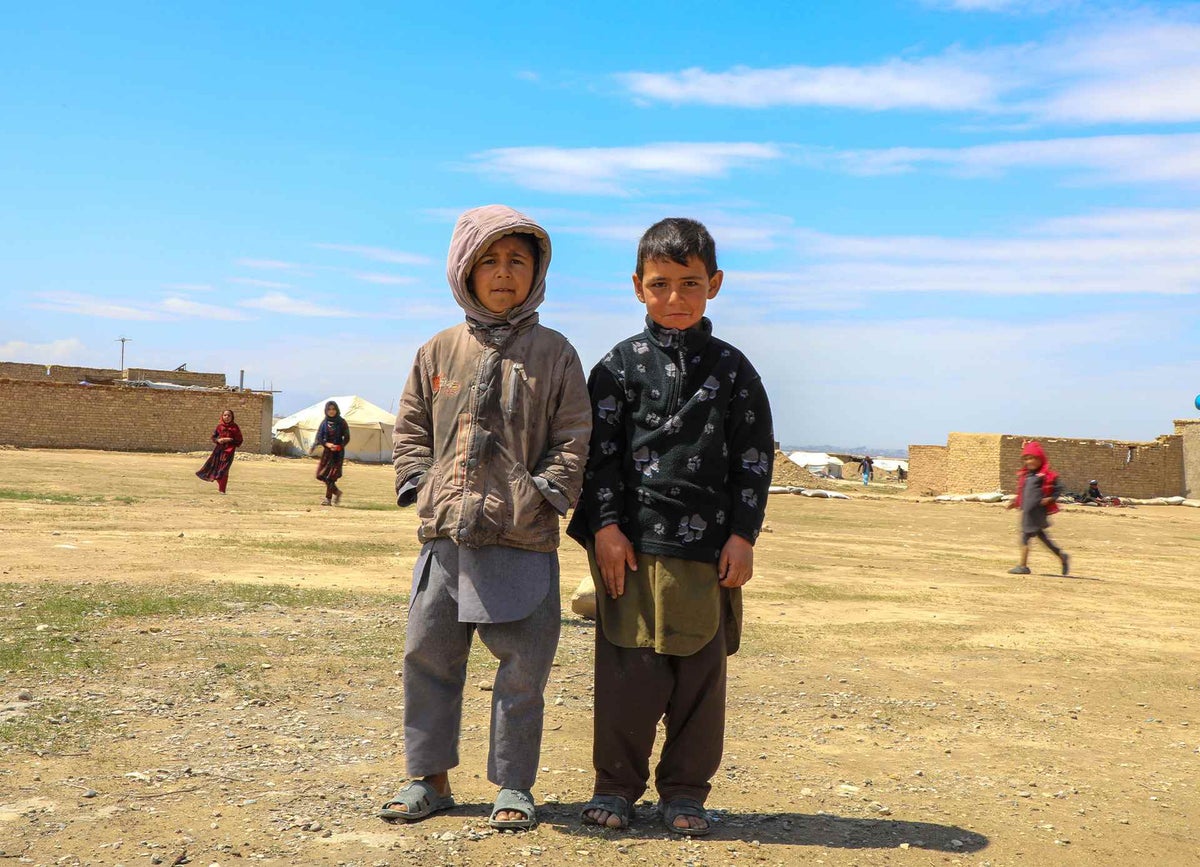
Health care out of reach
Drought, conflict and floods have destroyed parts of Afghanistan in recent years making it incredibly difficult to reach hundreds of thousands of children in remote communities.
Without access to basic services such as health care, clean water and education, they are at risk of being left behind.
Dick Chamla, UNICEF Afghanistan Chief of Health, originally from Canberra, Australia, knows all too well the devastating effects this can have on children.
“I was sad to see first-hand how armed conflicts could have a generational impact, with mothers and children left behind in most aspects of their lives,” says Chamla, about his arrival in Afghanistan.
“More children are suffering from malnutrition and common childhood diseases such as pneumonia and diarrhoea. Outbreaks of vaccine-preventable diseases, like measles, are on the rise.”
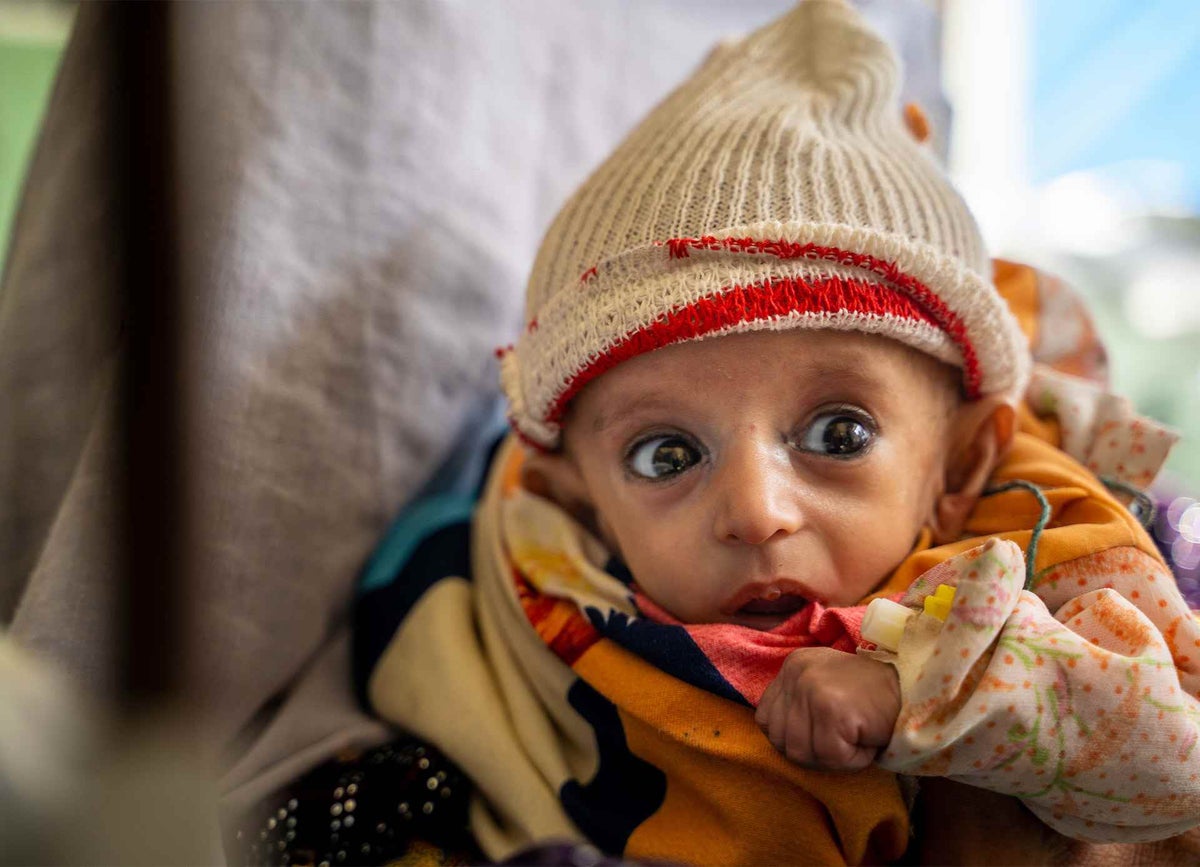
Although child mortality has reduced by 50 per cent since 1990, Afghanistan remains one of the most dangerous places in the world to be a child, with access to a hospital or health facility beyond the reach of most families. Even when health care centres are in reach a lack of supplies, including medications, as well as qualified staff can be devastating.
"Health supplies are life-saving – if they are adequate, of good quality and delivered on time."
“A lack of antibiotic to treat pneumonia could kill a child within few days, while lack of vaccines could lead to a long-term disability caused by poliovirus,” says Chamla.
“Health supplies are life-saving – if they are adequate, of good quality and delivered on time.”
UNICEF remains one of the few agencies working on the ground to provide not only immediate aid but also to negotiate access with government to reach children in need.
We support health facilities across all 34 provinces of Afghanistan, providing life-saving medical care and equipment for families in need.
So far in 2020, UNICEF mobile teams have reached hundreds of thousands of children and women with basic health care in some of the most vulnerable communities.
UNICEF was also able to distribute over 350,000 personal protective equipment kits within two months of the COVID-19 response to protect frontline workers.
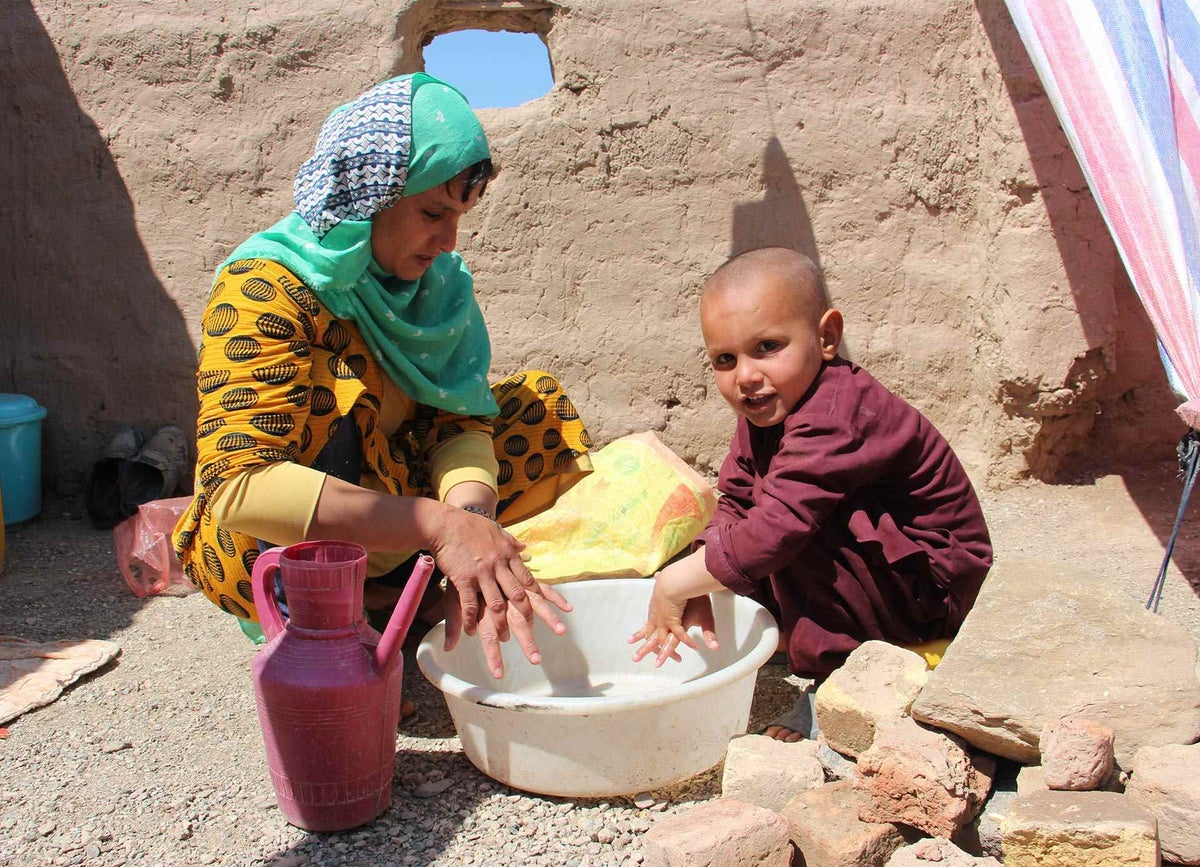
COVID-19 threatens displaced children
Now the COVID-19 pandemic is threatening to undo years of progress for children.
In Herat – one of the provinces hardest hit by the virus – women and children are bearing the brunt. Some 75,000 internally displaced people reside in tents and muddy rooms at the camp. Sharing washrooms and toilets with limited access to health care, the risk of the virus spreading is high.
“We lost our income because my husband lost his job due to the COVID-19 outbreak,” says Gull Jan, a mother of four who has been living at the camp for three years.
“We can hardly afford to house, feed and clothe our children. The children stopped going to school due to school closures and we are afraid of dying from the virus.”
The Ministry of Health reported a significant drop in the number of families attending health facilities because of fears of contracting COVID-19. In response, UNICEF utilised its polio program to set up free call centres for health consultations and provided mothers like Gul Jan with information on limiting the spread, as well as hygiene kits and baby blankets.
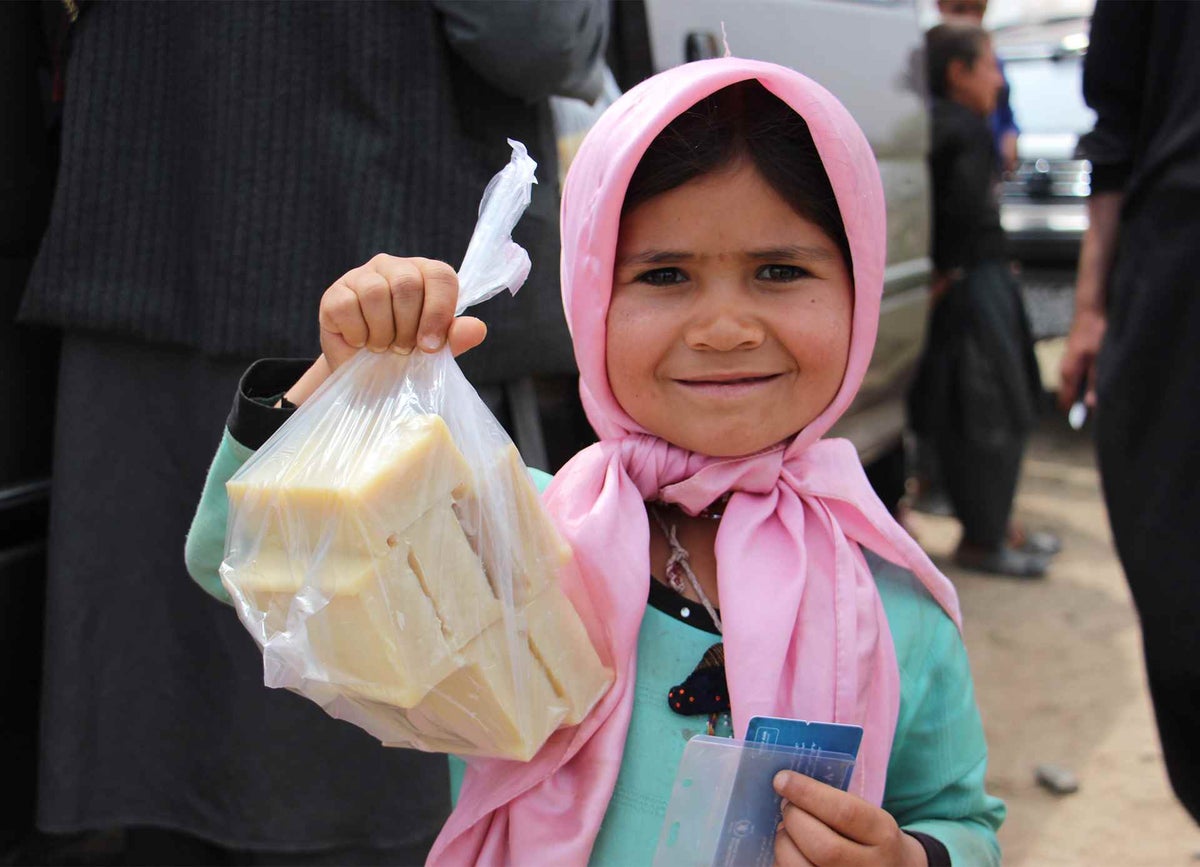
Soap is a simple item that can save the lives of children, yet many families cannot afford it.
During the pandemic, UNICEF supplied more than 84 tons of soap to vulnerable families at Herat camp, helping them to practice proper handwashing and limit the spread of coronavirus.
Almost half of babies have not received their vaccines
“I decided if my child was going to live or die it would be here in Mazar,” says Gul, mother of one-year-old Zikrullah.
Little Zikrullah wasn’t fully vaccinated and was severely underweight because he had contracted severe pneumonia and diarrhoea after a harsh winter.
"There is nothing more precious to me than my son."
Gul was trying everything to make her son healthy again but nothing was working – he just wouldn't breastfeed. The family were told to urgently take their son to hospital in Kabul but they didn't have enough money.
Fortunately, there was a UNICEF-supported clinic in their village, so Zikrullah could begin life-saving treatment closer to home.
“Now that he is recovering, his uncles and aunts may hold him but the scars are left on my heart. There is nothing more precious to me than my son.”
Without regular vaccinations, children are at risk of contracting life-threating diseases such as measles and polio.
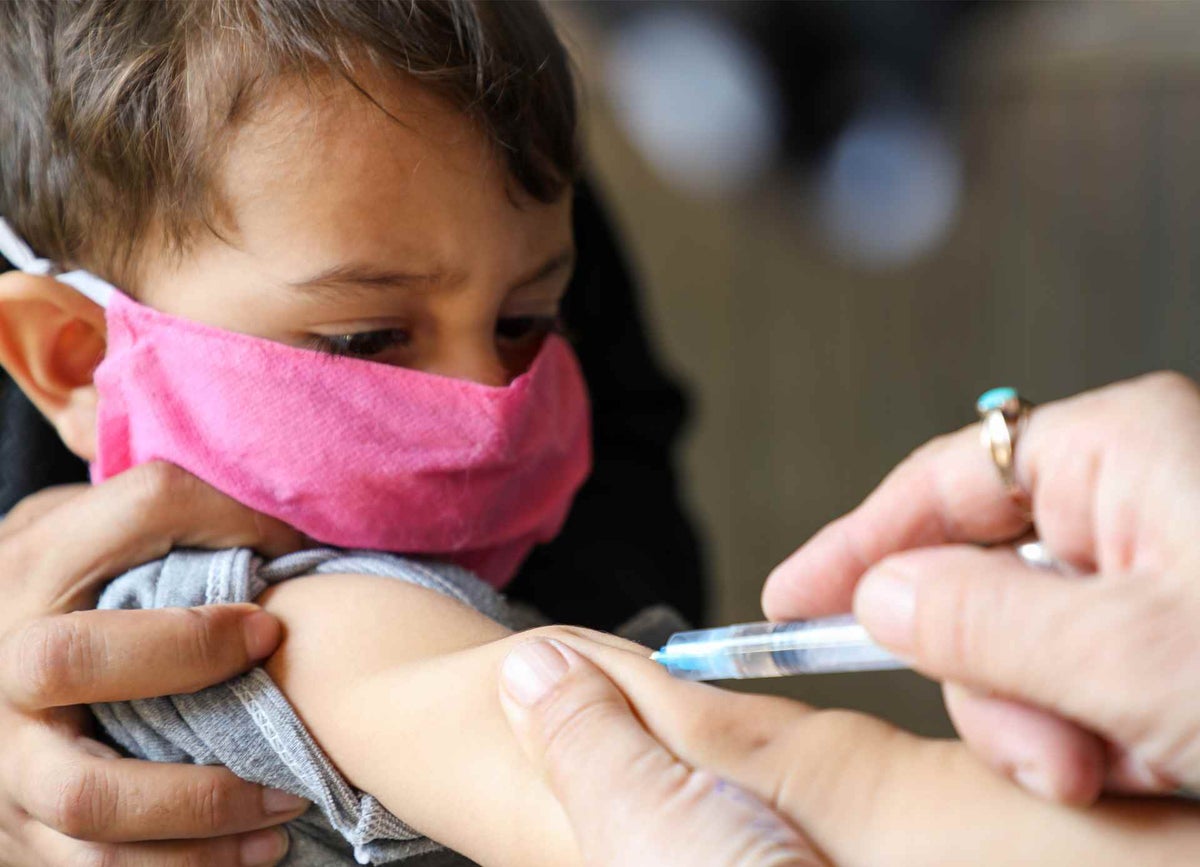
Afghanistan – along with Pakistan – is one of the only two countries in the world that has not yet eradicated polio. This highly infectious and crippling disease is especially dangerous in children under five.
Due to COVID-19, all vaccination campaigns, including polio campaigns, were suspended in Afghanistan in March in order to reduce the risk of COVID-19 transmission to children and health workers. This left millions of kids unprotected, and polio cases reached 34 in Afghanistan.
However, with the help of UNICEF and partners, the Ministry of Health was able to resume vaccination campaigns with strict new protocols and are continuing the fight to banish polio to the history books for good.
Help #DeliverFutures
Our team of UNICEF humanitarian workers will go down roads with no names, through war zones and up mountains to reach children most in need of supplies.
UNICEF health workers know how to bring a child back from the brink of deadly malnutrition or administer vaccines in the most challenging of circumstances. We have the global network to respond as soon as children need us in every region of the world. But we can’t do it alone.
What we’re doing is working. Every day, UNICEF donors make thousands of children smile because they’ve beat malnutrition. But emergencies are stretching our teams and resources to the limit. We've never needed your generosity more.
Children in Afghanistan
UNICEF will remain on the ground in Afghanistan supporting vulnerable children and their families. We can't do this without you.
Related articles
Stay up-to-date on UNICEF's work in Australia and around the world



